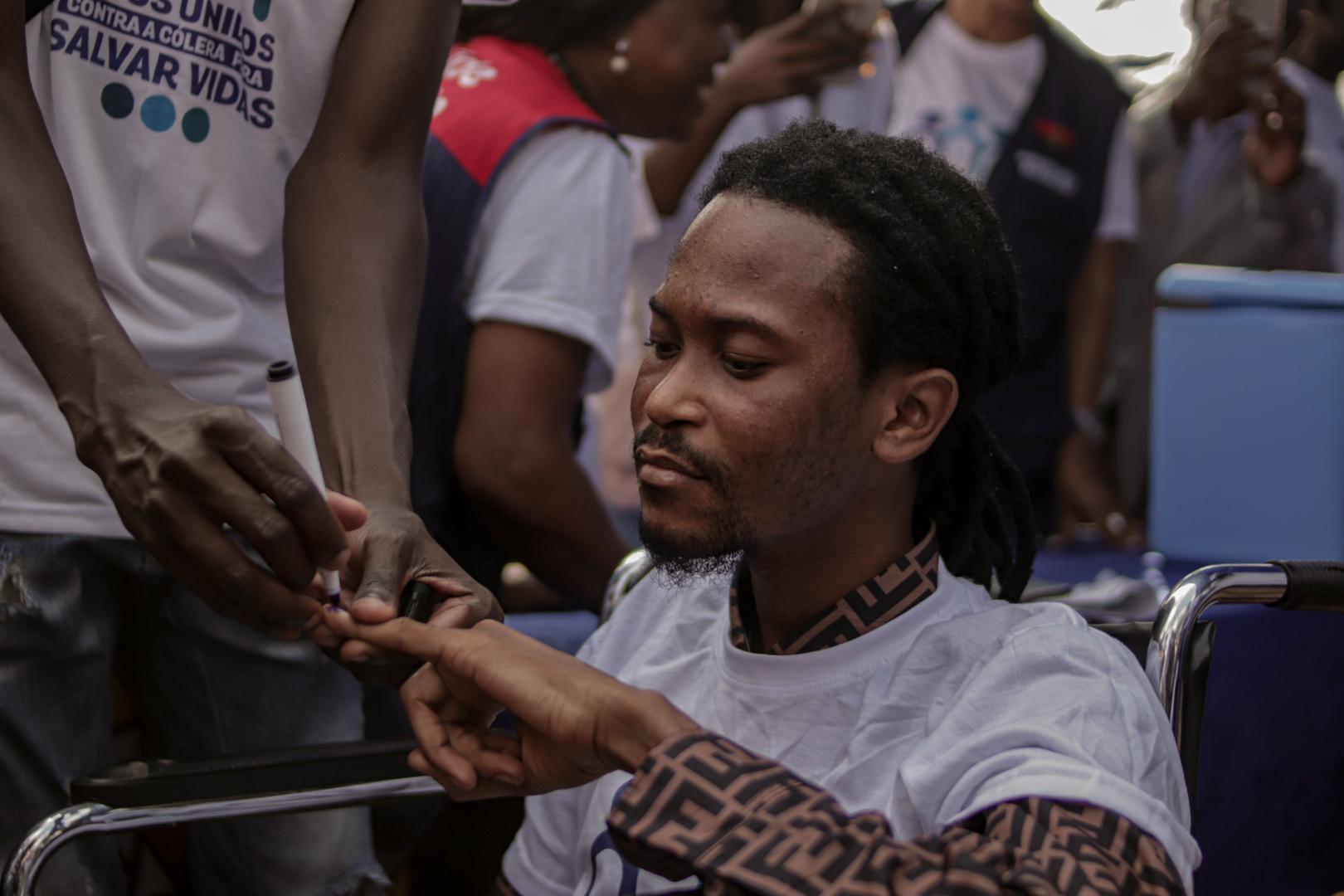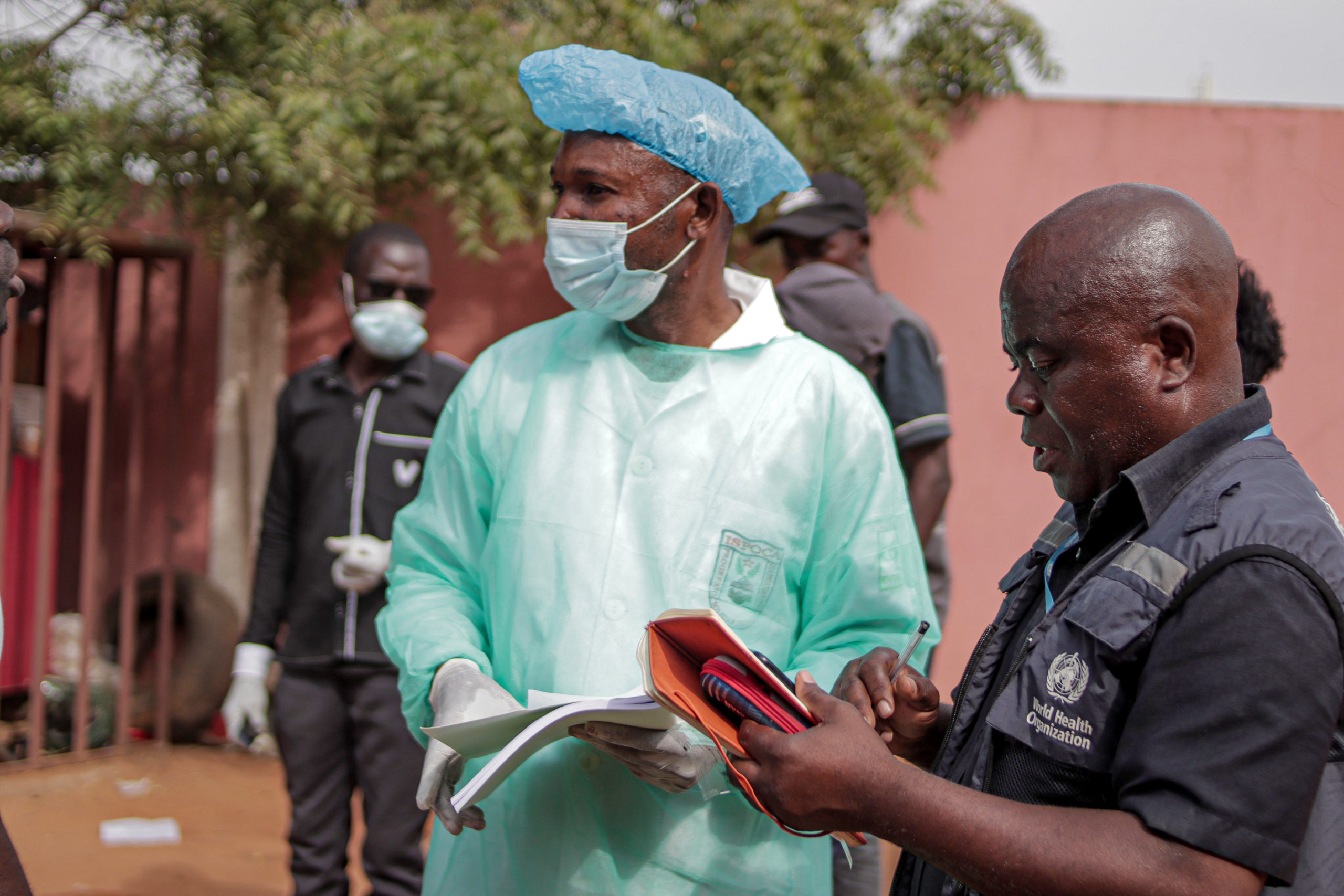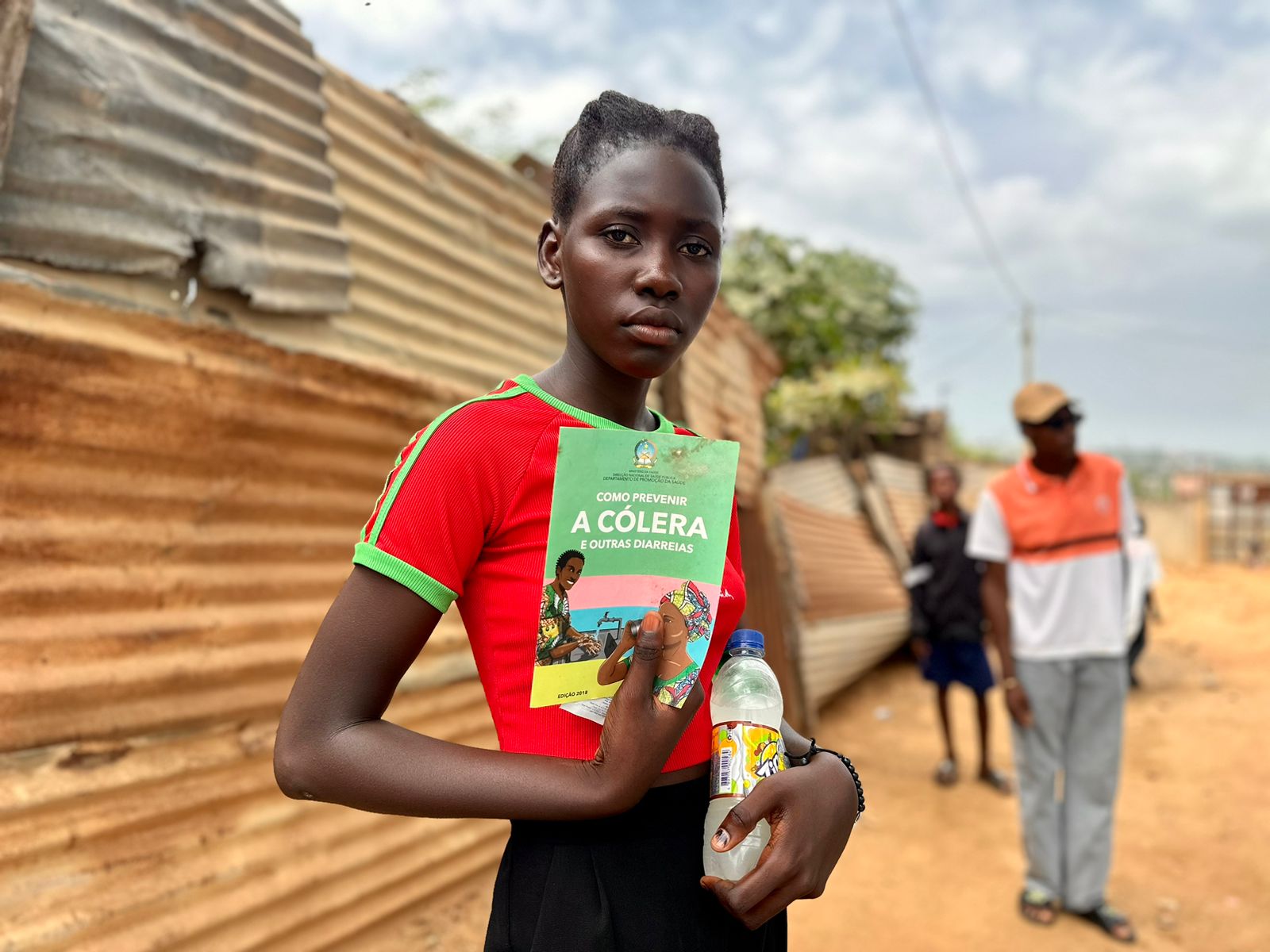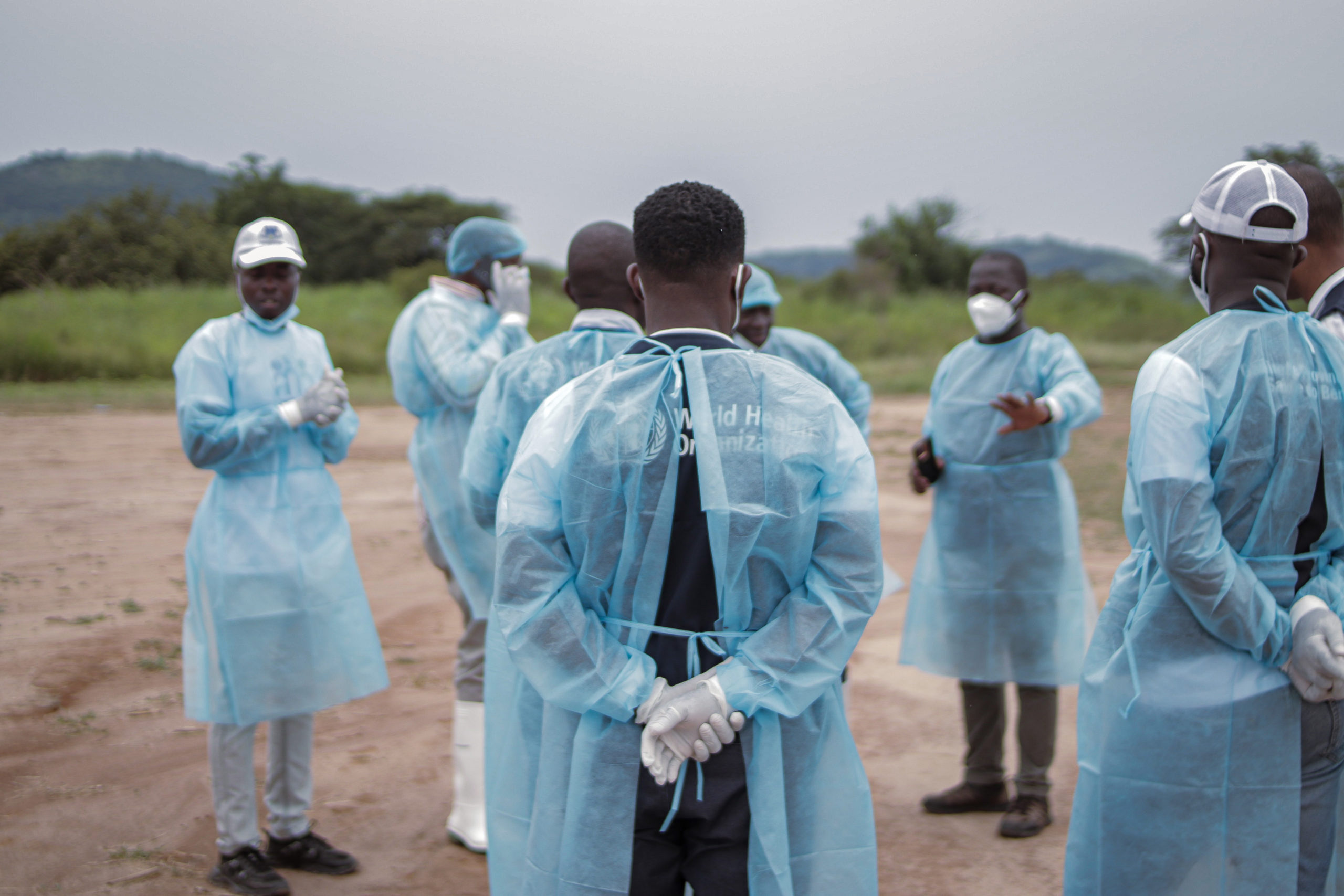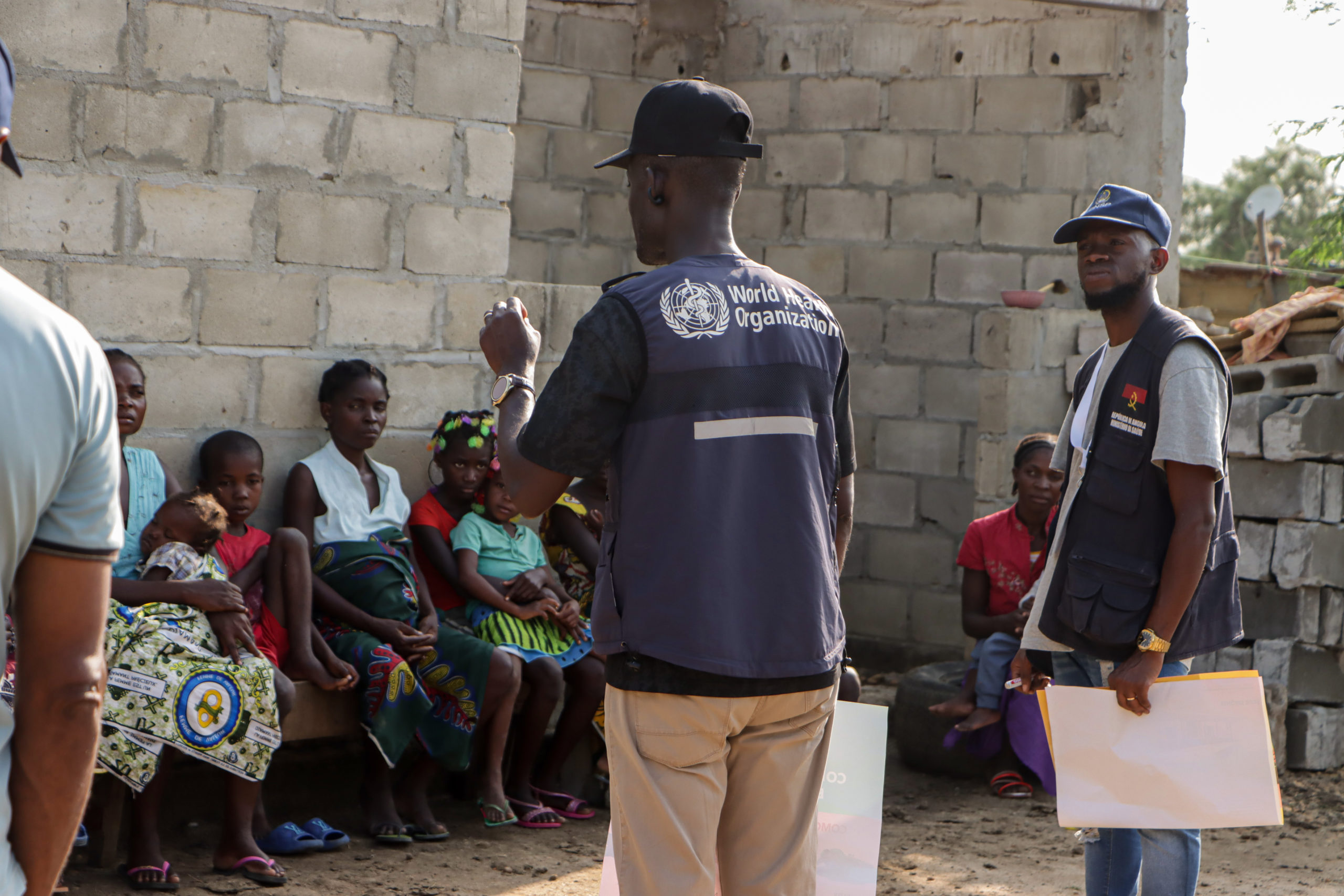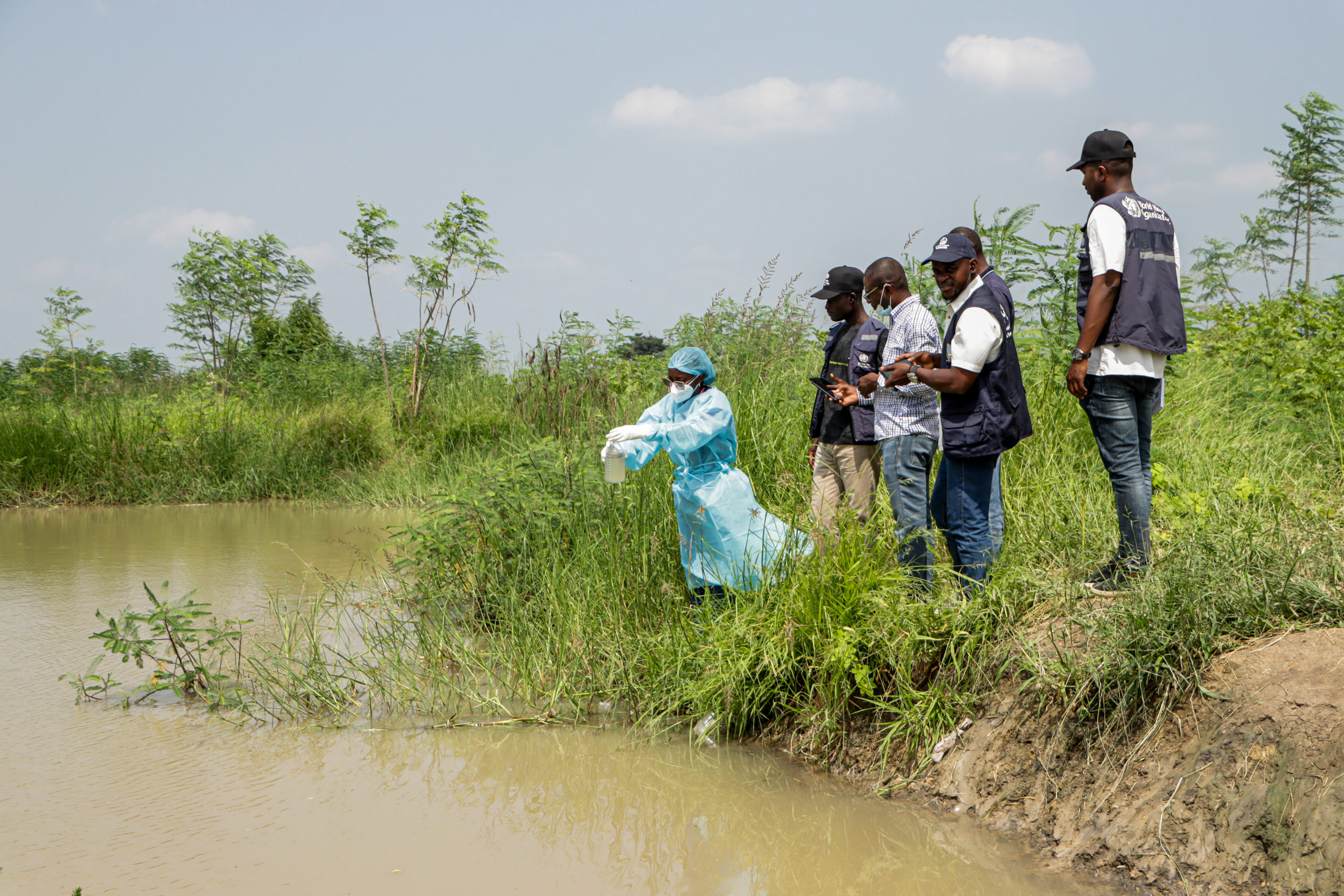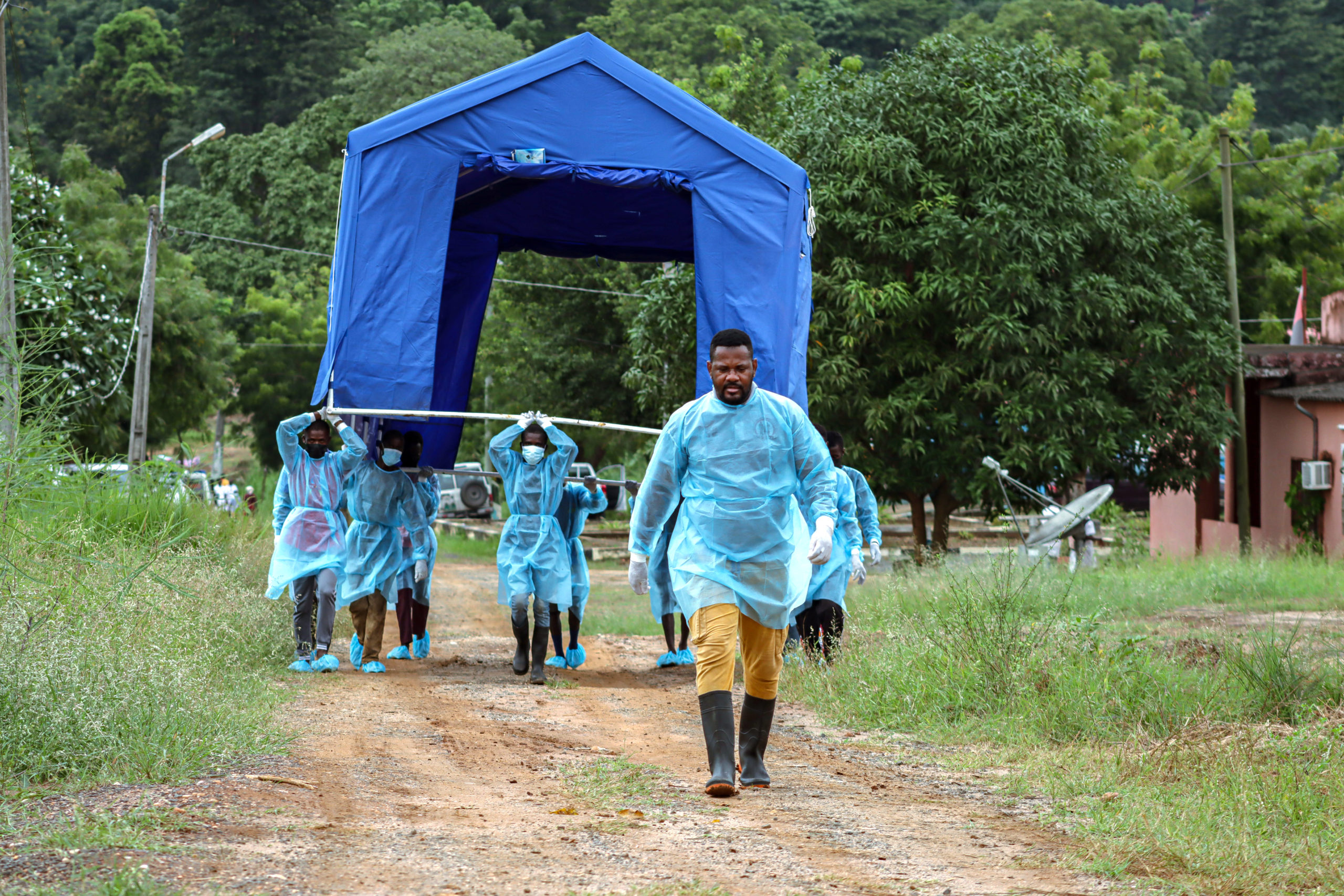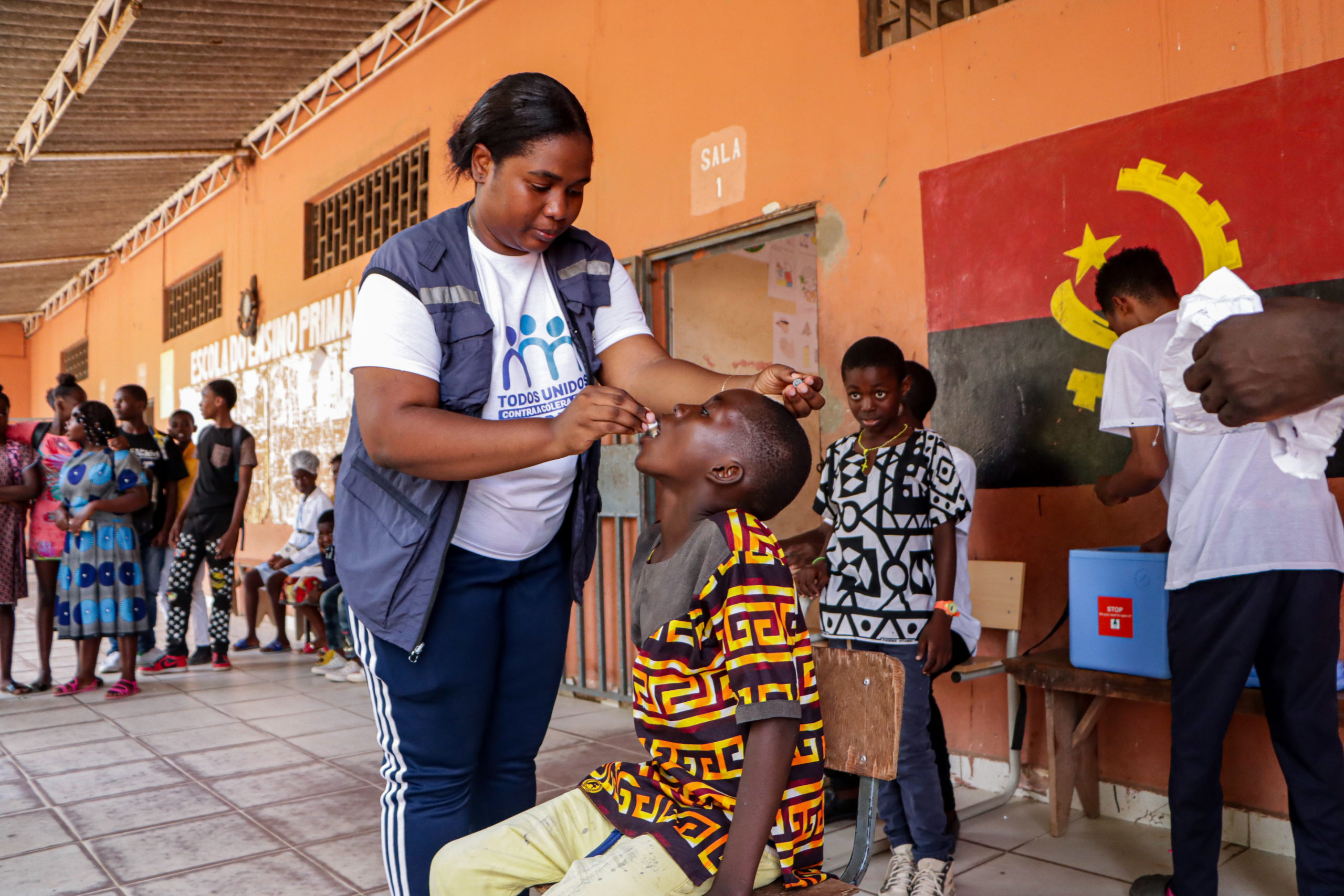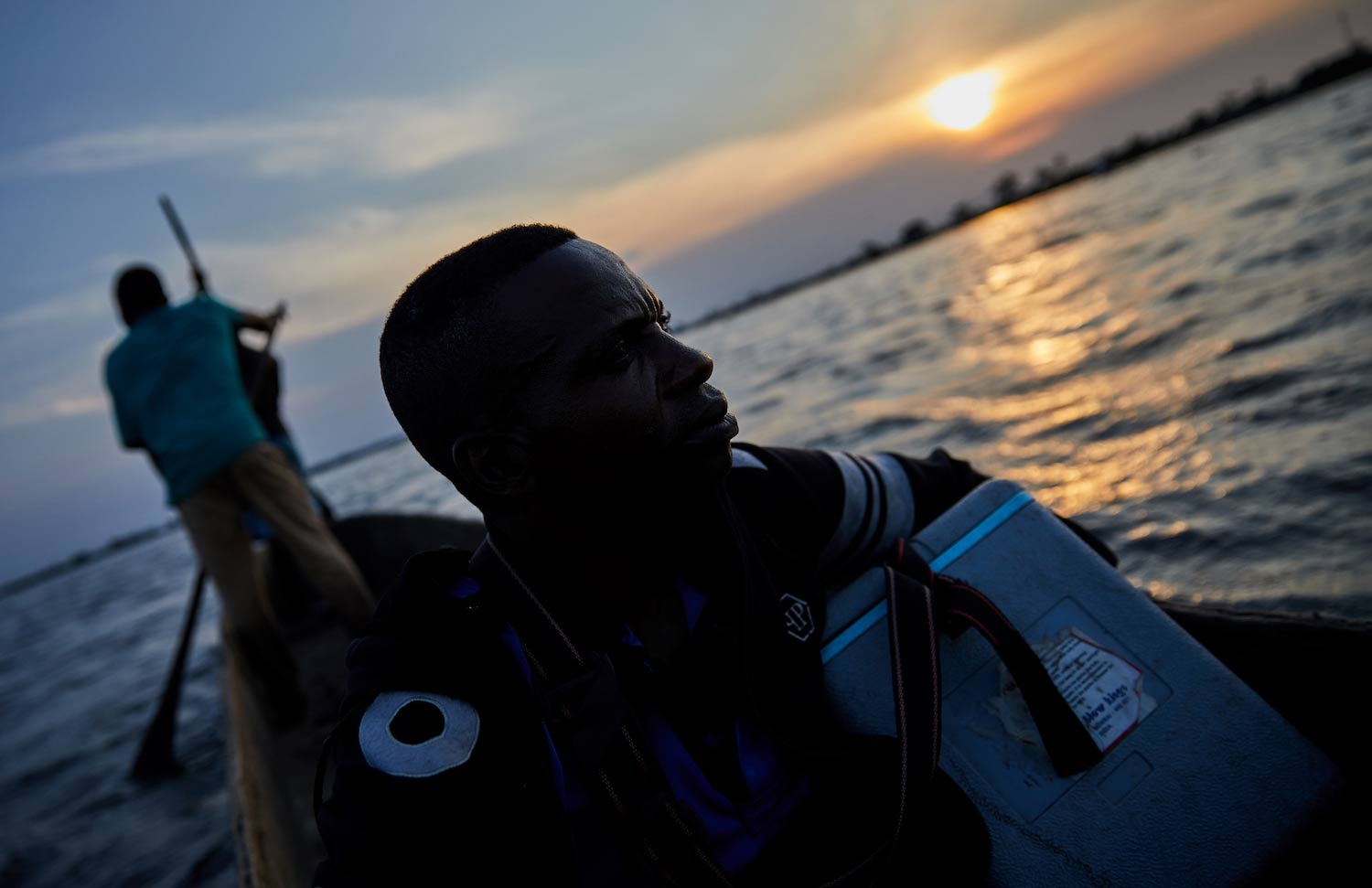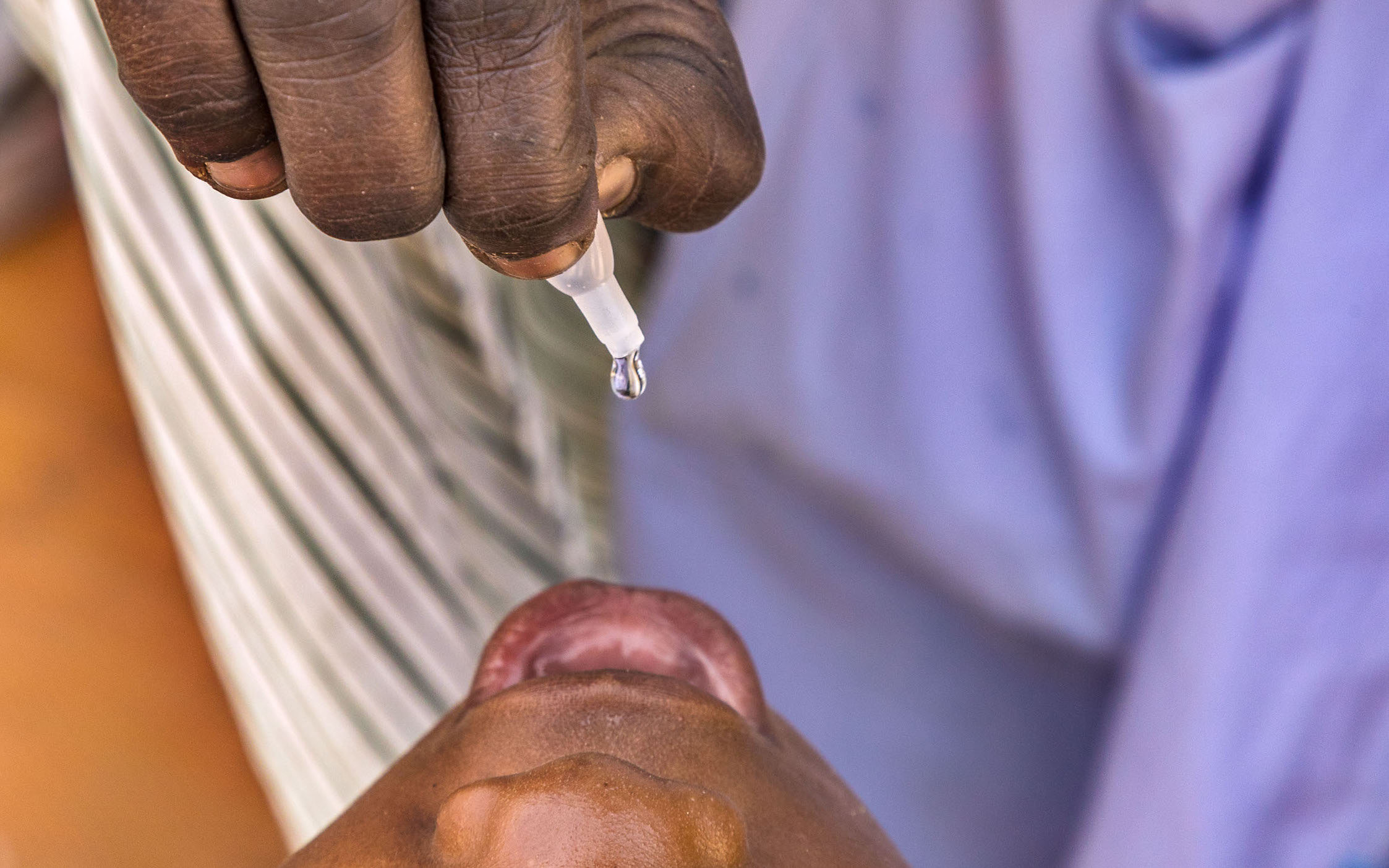Luanda ‒ When the first cases of cholera were reported in Angola on 7 January 2025, the response had to be immediate to avoid further human loss. Fortunately, the country didn’t start from scratch. Infrastructure created to eradicate polio, such as mobile teams, community surveillance networks and logistical systems, were quickly adapted to stop the spread of cholera in priority areas.
This support was crucial in the first oral vaccination campaign against cholera, which ran from 3‒7 February 2025. In total, around one million people, including children and adults, were reached in the most-affected provinces of Luanda, Bengo and Icolo e Bengo.
In addition to securing oral cholera vaccine (OCV) for the campaign, WHO provided key technical support in preparing vaccination plans, training vaccinators and surveillance officers, and conducting independent campaign monitoring.
António Morais makes his way towards the vaccination team set up in his neighbourhood’s community centre. The cholera outbreak, which has deeply shaken his community, has left its mark on him. He lost neighbours, friends, and with them, a part of his daily life. So, after taking the first dose of the vaccine, António says, “I feel more at peace. I consider myself immunized; my joy can be summed up in a few words ‒ thank you, vaccines save lives!”
The oral cholera vaccination campaign strategy included the installation of fixed posts in health units, community centres, churches and orphanages, as well as the deployment of mobile teams to remote areas, to ensure that no one was left behind.
In addition to vaccination, the response also included complementary actions such as active detection of cholera cases, community mobilization and immediate treatment of cases. These measures were essential to stop the spread of the disease in communities with limited access to basic services.
Vaccination and social mobilizer teams were made up of the same dedicated volunteers who participate in local polio immunization campaigns. Similarly, community-based volunteers who serve as polio surveillance focal points were retrained to identify and report suspected cholera cases. Deeply rooted in their communities, these volunteers were vital in the response, leveraging their local knowledge and trust within communities.
“With the reinforcement of community mobilization and support, we had a positive response and managed to achieve 99.5% coverage thanks to the strong awareness-raising work.” — Dr Maria Quaresma Gomes dos Anjos, WHO Immunization Officer.
“With the support of the structures created in the context of polio, we have been able to act quickly, even in remote and hard-to-reach areas. It is this foundation that has allowed us to protect more people in less time. Avoiding more deaths from a disease that can be prevented and treated is everyone's responsibility, from the government, partners and the community itself.” — Dr Indrajit Hazarika, WHO Representative in Angola.
"With determination, solidarity and effective measures, we will beat cholera. Vaccination against cholera is not just a public health measure. But more than that, it is a commitment to a healthy future for all and to the progress and prosperity of our country." — Angola's Minister of Health, Dr. Sílvia Lutucuta.
Today, thanks to this collective effort, people like António, in all the provinces affected by the outbreak, are vaccinated and more aware of the risks of cholera and ways to prevent it.
